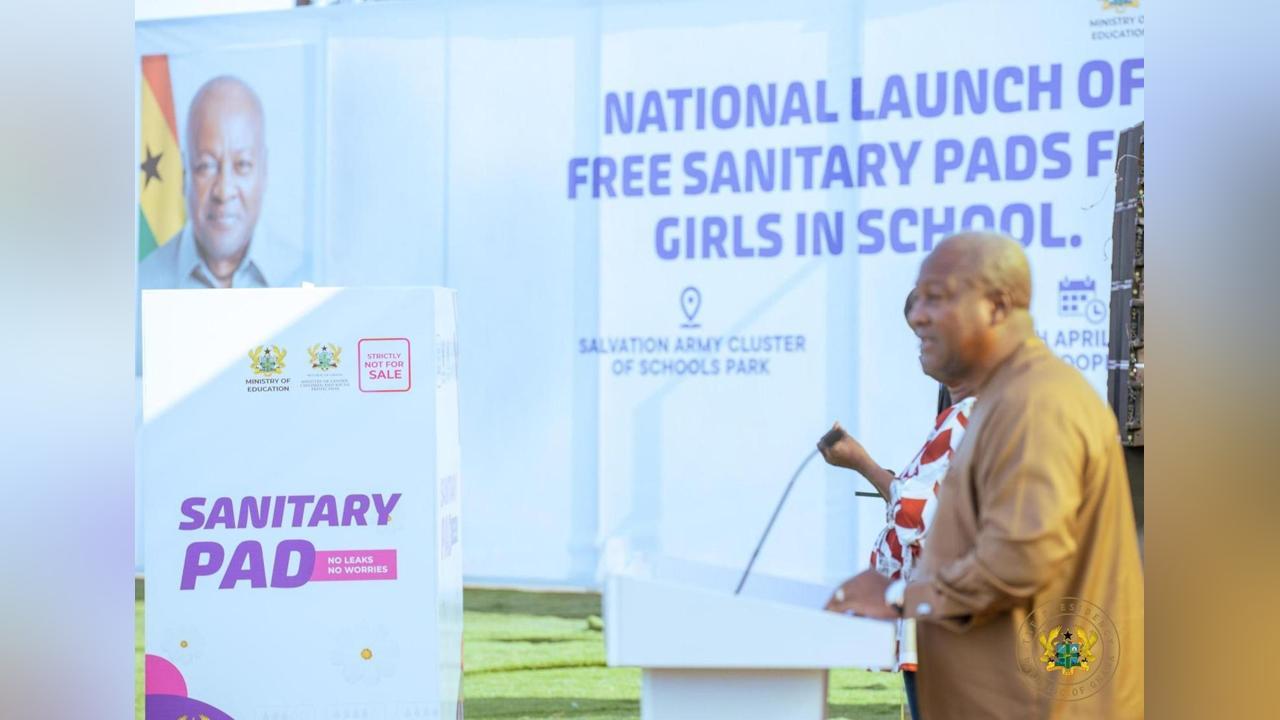Africa-Press – Ghana. Mrs. Ama Safowa, a mother of three daughters, faces a significant financial burden every month.
As a single mother to three teenagers aged between 12 and 15years, she is burdened with considerable monthly expenses.
Foremost among these is school fees, followed by their daily food allowance, utility bills and lastly, the cost of buying sanitary pads for them.
Like many girls in their age range, Mrs Safowa’s daughters are expected to purchase sanitary pads to take of their heavy monthly flow.
The average price of sanitary pads on the market currently stands at GH₵17 a pack.
For Mrs. Ama Safowa, grappling with tight budgets and prioritising fundamental needs such as food and shelter, the cost of menstrual hygiene products represents a significant financial strain especially living in Ghana’s urban centres like Accra
Mrs. Safowa needs an amount of GHS more that 100 Ghana cedis every month to address the menstrual needs of her daughters.
To mothers like Mrs. Safowa, the announcement of the free sanitary pads initiative for schoolgirls is not merely a matter of menstrual hygiene but a financial “messiah” for households.
With the government’s recent allocation of GH₵292.4 million, this initiative has the potential to ripple through family economies, offering much-needed relief and reshaping spending priorities.
According to the Ghana Living Standard Survey by the Ghana Statistical Service, the average household income in rural parts of Ghana was GH₵ 1500 annually, while households in urban areas earn between GH₵3,000 and GH₵5,000 monthly.
Female headed Households like Miss Safowa, which earns less than GH₵3,000 monthly, are forced to spend more 10 per cent of their monthly income on sanitary products.
Households in rural areas with an annual income of GH₵1500 would be forced to spend approximately 20 per cent of their income on sanitary pads annually.
When households are prioritising putting food on the table and keeping a roof over their heads, menstrual hygiene often falls lower on the list of urgent expenditures.
The question is, what was the plight of many families in addressing the menstrual hygiene of their girls in schools?
She will save 1200 Ghana cedis annually and can channel this savings into other ventures or address other needs.
Thus, the government’s plan to spend GH₵292 million on sanitary pads is not a mere expenditure but a financial “messiah”.
For More News And Analysis About Ghana Follow Africa-Press







